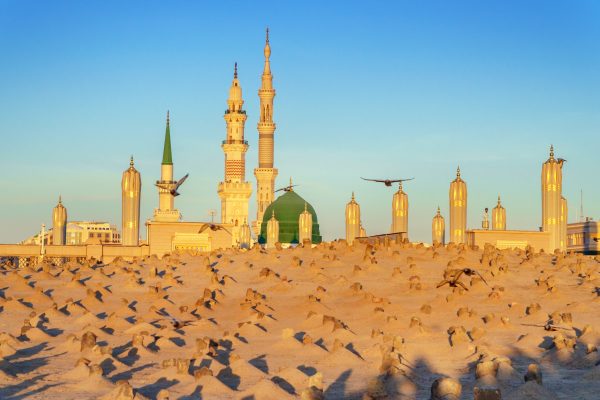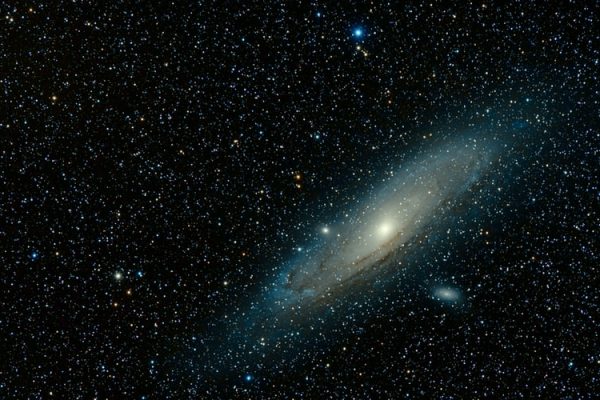As a Muslim, we are raised with the teaching of there being a higher power than us the creation. That He loves us and and in turn, we should love Him. He, being Allah, the Most Merciful, the Most Exalted. We are provided with the necessary tools to develop, sustain and grow this relationship. However, what we fail to comprehend is that man cannot be taught a feeling. So what do most of us do? We personify our relationship and love for Allah. This happens naturally and often at a young age where we are yet to differentiate between love and divine love. Subconsciously, when things may not go our way we can blame Allah, hold it against Him or in some instances, even turn away from Him; resulting in our relationship and love for Allah mimicking that of people in our life from whom we also have expectations from. Similarly, we may turn to Allah when we require something specific; increasing our commitment to worship, the same way we would increase our efforts towards a person that we had an underlying means from.
Human nature compels us to adopt attributes from relations between creation. To recognise that our relationship with Allah is like no other, it is important to establish the status between man and Allah. In this context, many words are used to describe this divine relation; ‘Creator – creation’, ‘Master – slave’ etc. Understanding that there is something greater than ourselves is a notion preached, but in reality, practiced at a distance.
As a child, I recall watching a documentary with my brother about a region within the Middle East (I think it was Afghanistan). The presenter came across an elderly gentleman who had dug up a hole within the ground, in which he would stand and recite the Quran for hours in the day. When interviewed by the presenter the man said, “being a Muslim is simple.. you must have no ego”. Those words have remained embedded into my mind and as an adult, they have led me to understand the role of the ego in refraining us to love in the capacity of a ‘slave’; “One who is ego-centric and selfish cannot achieve anything spiritually” (Nizamuddin Awliya (Rahmatullah)).
So if as Man, we are inclined towards attaching the weak qualities of human love to divine love, why do we skip the stage of falling in love? For most people falling in love with someone (even those we never expected) will be the result of spending time with that individual, learning about them, understanding the lineaments which define them. If this approach was adopted with loving Allah, surely our worship would change from fulfilling an obligation, to simply spending time with our loved one.
Furthermore, we can gain a better understanding by looking at innate love, such as that between a mother and child. Although there is a sacred link in this relationship, the love is driven from the debt we owe to our mothers; from carrying us in their womb to nurturing us in all forms. For these reasons, when questioned who we love most in this world, most people will answer ‘my mother’. Now imagine knowing a person who gave us life, who always remembered us when bestowing favours even if we failed to remember Him, who gave us all our abilities, skills and knowledge. Someone who would welcome us back with open arms regardless of any sin we had committed and taught us lessons in the most remarkable means to make us the best we could be. Someone who was our number one fan and met our every necessity, even without us asking. Someone who was there all day, every day, a direct call away, on standby solely just for us. This list does not do the slightest justice to what Allah does for us, but had this been a person, how would we treat them? We are told that Allah loves us 70 times more than our mother, when truth be told, we should love Him 70 times more than our mother.
They say ‘love rules the world’ but what about the One who created the world and the love in it. We become so far indulged into our human relationships, that we will only focus back to the source when we need those relationships to be mended. We are taught to put so much effort into maintaining relationships such as marriage, that we have neglected the most important relationship of all. There is something very melancholic about asking Allah in the only time we set aside for Him, to improve our relationships with those other than Him. We are encouraged to follow our faith for our own gain, even if it may be for the attainment of Jannah. What about gratitude? What about wanting to attain Jannah simply because you wanted to be in the presence of Allah. This is the difference between practicing your religion and believing in what you practice. My measurement of loving Allah is when having people in your life becomes a bonus.
This topic is aimed to be food for thought as opposed to a strict opinion or facts. May Allah (open our hearts and spiritual eyes to absorb the amount of divine love we have been blessed with as His creation and to be appreciative of this by following the Quran and Sunnah.
by Mariyam Malik





